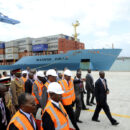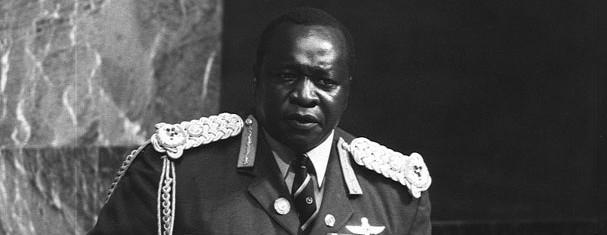On Paying the Price to Settle Darfur
The Sudanese polity runs on political credit notes. The big issues are constantly deferred because the political price of coming to a decision is too high, with cash paid only for interim settlements to try to manage the crisis. Over the last five and a half years, the government in Khartoum has not wanted to pay the price demanded by Darfur’s rebel leaders, believing that the insurrection will disintegrate and international concern will fade, allowing it to settle for a cheaper price. As earlier with the South, it miscalculated and the price of a settlement has risen year on year. Twenty one years ago the Islamists launched their coup to pre-empt a compromise on Islamic law and ended up conceding self-determination for the South. They launched the Darfur firestorm to avoid conceding a power-sharing formula to Darfur and may well end up facing the ICC. It’s time to settle the Darfur account at the asking price.
The last week at the General Assembly was a sobering experience for the Sudan government delegation. Before arriving in New York, Khartoum expected that a deal on deferral of the ICC arrest warrant against President Bashir was on the cards. Achieving the momentum for a year’s deferral under Article 16 was their minimum agenda. Departing back to Khartoum for the Eid, the delegation was resigned to the reality that the arrest warrant will go ahead””delayed only by the internal procedures of the Pre-Trial Chamber in The Hague. A deferral is the maximum that Sudan can hope for, and that depends upon unexpected developments in its favour.
The NCP has delegated responsibility for fending off the ICC to the African Union and the Arab League. Sudan certainly has a lot of sympathy in the two regional bodies and among their member states. The AU and Arab League can certainly shut out the ICC (and probably will), but this doesn’t bring much benefit to Khartoum. It is modest solace that pariah status in the west will be mitigated by the solidarity of neighbours (an important contrast from the 1990s). Being chosen as leader of the G77 is just a consolation prize””nothing more than an opportunity for giving some spin to the setbacks in the national media in time for the Eid.
At present, none of the routes to a deferral of the arrest warrant seem feasible. And in fact””as so often with policies towards Sudan””the lack of clarity and coordination among international efforts spells delay. The decision-makers in Khartoum are likely to spend much of their time figuring out what is the real agenda among the leading international players (especially the U.S. and secondarily Britain and France) rather than getting to grips with solving the issue.
As I discussed last week, there is no indication that any of the P3 are close to seeing their conditions satisfied.
The prime candidate for securing a deferral would be a credible peace process for Darfur. The Sudan Government cannot deliver on a workable peace process on its own””it needs the rebels to be serious as well. But it can make unilateral moves to demonstrate its commitment (accepting that any good faith concessions may be brushed off by a skeptical international reaction). The Qatar government has recently stepped into the ring with a proposal to facilitate a Darfur peace conference, and is pressing Khartoum to make some major gestures in Darfur. This may in due course result in progress towards peace, but””and it is a crucial proviso””the necessary preparatory work is done to build confidence that the peace process is for real. This preparatory work will take many months. The ICC Chief Prosecutor has made it clear that he is not ready to reconsider or delay the process he has set in motion. Sympathetic though they are to the Qataris, none of the P3 is going to cast its vote in favour of deferral solely on the basis of this initiative.
The Qatar initiative has many positive aspects, not least the possibility that the Qataris themselves may provide some of the resources necessary for it to work. But waiting for progress in Qatar could readily become a reason for the NCP to succumb to its default mode of the politics of delay.
A second route to a deferral is for Sudan to mount sufficiently serious prosecutions in domestic courts that it can credibly claim that the ICC has no jurisdiction, invoking Articles 17 and 19 of the Rome Statute. The African Union has promised cooperation on this front, both in the form of a High-Level Panel and also African judges to preside in the courts.
This initiative also has many positive aspects. But it falls far short of what would be needed for a credible challenge to the ICC’s jurisdiction. The record of domestic investigations and prosecutions is so bad that Sudan has a huge credibility gap to fill before it can be judged to have made any progress forward. There has been little progress on this initiative in the last two months and a huge acceleration is needed to show any glimmer of hope. And the ICC’s lawyers can always argue that Articles 17 and 19 should only be invoked if there is a serious effort to prosecute President Bashir in a domestic court””which is inconceivable.
In these circumstances, the NCP leaders in Khartoum will be tempted to lapse into a fatalistic attitude and argue that there is nothing that they can do which will satisfy the appetites of the P3 and the ICC, so their only option is to adopt a defensive posture and give nothing away. That would be an error. Leadership is needed for Khartoum to press ahead on both fronts undistracted by the inevitable micro-criticisms.
The Sudan Government should look carefully at the coinage of the expressions of understanding of its predicament and the criticisms of the ICC and its friends. Africa, the Arab world, much of Asia and many western diplomats and analysts are appalled at the misjudgements that have marked international policy towards Sudan. But double-standards and errors by Khartoum’s adversaries do not provide any alibi for the Sudan government’s own disastrous blunders. Most of those who press for a different international policy towards Sudan do so because they believe that stability is important, and that overthrowing the “˜devil you know’ often leads to a much worse outcome. This means dealing with the powers-that-be. By the same token, Sudan must deal with the reality of international power, with all its unappealing features. International policies won’t falter just because the analysis is wrong and the proposals are reckless. The reality is that the pressure on the NCP will not relent whatever it does, and yet Khartoum’s only option is to pay a price that it considers unfairly high and still not get the credit for it.
When a solution comes to Sudan’s crisis it will surely have the following features. First, the NCP will pay a high price, politically and financially. Less of the payment will be credit notes, more cash. Second, the longer the NCP waits it higher the price will be. And last, it will be a Sudanese solution that involves trade-offs and compromises that mean that the UN and western governments don’t recognize it as a solution. The payoff of a solution will be mostly domestic, not international. But it’s still worth it.







Dear Alex:
I just discovered your blog and associated comments on Sudan. I have been very active working in the medical field in Sudan since 1979 and presently go every winter to teach a course on research methods. I think much of what you have stated about Sudan and the complex nature of the country is accurate and reflects what I have experienced over the last 30 years.
My work in Sudan can be easily accessed through Google Scholar by simply typing JL Bennett and looking at the paper dealing with schistosomiasis.
My regards,
James L Bennett
Retired Professor of Pharmacology and presently working for the
Univeristy of Medical Sciences and Technology
Khartoum, Sudan